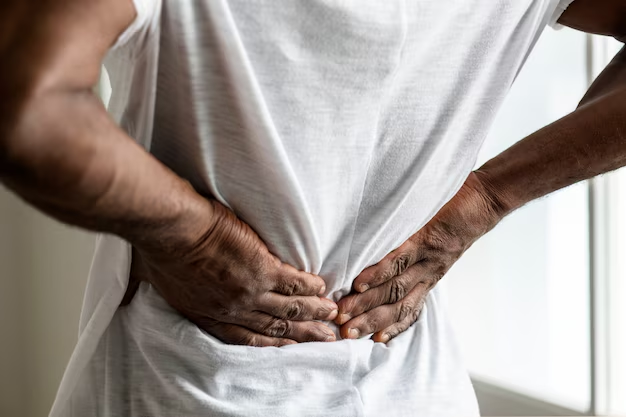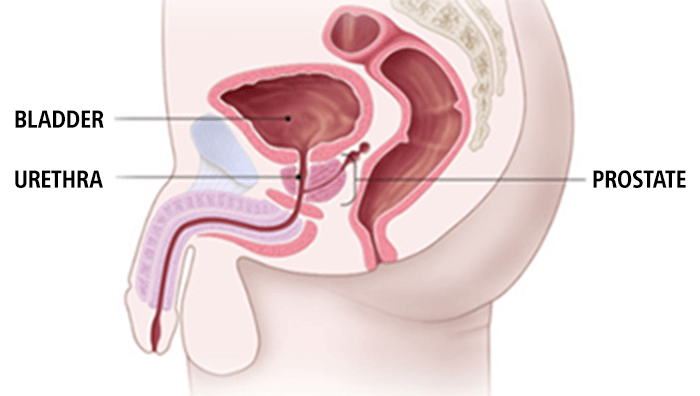Health Essentials
You have only one back, pamper it

Backpain is undoubtedly one of the commonest complaint
- Backpain is undoubtedly one of the commonest complaint
Whenever I get to attend to clients, backpain is undoubtedly one of the commonest complaints. Sometimes I wonder if it’s the norm or I simply attract people suffering from backpain.
Approximately 40 per cent of all people will complain of significant back pain some time in their life. About 95 per cent of these cases resolve spontaneously within six weeks. Most cases of back pain go away on their own after a few days but if yours lasts more than a week, see a doctor. Usually the pain will be due to muscle strain or ligamentous sprain which heals with time with or without treatment.
A small proportion of acute back pain may have significant, serious pathology as its underlying cause. Examples include fracture, neoplasm, infection or other conditions that adversely affect a nerve (e.g. a disc between vertebrae bulge or burst open and presses on a nerve such as the sciatic nerve).
Risk factors for back pain
• Obesity
• Occupation – sedentary workers and those who need to lift things or bend for hours
• Poor Posture- this includes how we sit at work and the awkward postures some of us adopt.
• Being out of shape – pot belly etc
• Smoking
• Genetics – vulnerable to scoliosis, spondylolisthesis etc
• Age – young athletes are prone to tiny fractures in the spine (spondylolysis). The aged are likely to have arthritis
• Psychosocial Issues – Depression, Anxiety, Stress
Diagnosing back pain
Some people complain of back pain after lifting heavy objects using an abnormal posture or sitting for long periods but several others may not remember any triggers.
Often the patient’s complaints and the doctor’s findings will clinch the diagnosis but your guess is as good as mine; the management/ treatment is usually the same.
Laboratory tests are often not helpful except for the few cases where infection or neoplasm is a concern.
X-rays are not indicated in most cases of back pain, especially within the first six (6) weeks. It may only become necessary when pain persists, or there is concern for fracture, neoplasm, infection or other serious condition. Other studies that may be helpful are, Bone Scan, CT Scan or MRI.
Managing back pain
The mainstay of management is:
• Bed rest for a short period of time usually not exceeding three days.
• Early mobilisation ensures quick recovery. Get moving, do not stay in bed indefinitely
• Lying on a firm surface is recommended but super hard mattresses may sometimes cause back pain
• Analgesics such as Brufen, Naproxen etc are useful but avoid if you have peptic ulcer or have bronchial asthma.
Other options for management include:
• Psychotherapy – many cases of back pain have been found to be linked to anxiety and depression
• Physiotherapy/Physical Therapy also has an important place
• Massage, Osteopathy and Chiropractic all play a role in relieving back pain
• Surgery may also be needed. Certain cases of back pain are surgical emergencies but for the majority, surgery may be a last resort. Though surgery may make the patient feel better quickly, the same can be achieved with physical therapy in the long term (Study in Journal of the American Medical Association) in most instances.
Need to see the doctor now – warning signs you can’t ignore
In general one may not need to see a doctor immediately with most brief episodes of back pain but if the following are associated with your pain then get to the hospital NOW!!!
• Extreme leg weakness
• Loss of bladder and/or bowel control
• Numbness or altered sensation in groin or rectal area
• Fever or sign of infection
• History of cancer
Living without back pain
• Stay fit – Exercise on most days of the week (www. healthclubsgh.com)
• Eat a balanced meal at the right times
• Maintain a healthy weight
• Cut out tobacco
• Take time off to relax
• Attitude – take charge of how you feel. Do not be too hard on yourself.
• Make sure you sit appropriately and take brief breaks after at most an hour and half of sitting.
Some exercises that may help to heal back pain
• Planks: Daily planks or at least doing this thrice a week may help protect your back. In the acute phase of backpain however most people are unable to do this.
• Wall slide: Slide up then down till your thighs form an angle of 90 degrees with the vertical wall. Repeat
• Pelvic tilt: Lie on your back with knees bent. Exhale and pull abdominal muscles in and up towards the ribs. You may also lift your buttocks of the surface and squeeze for a count of five and repeat.
• Bird Dog: Bend over on all fours, then raise opposite arm and leg parallel to the floor hold for a count of eight or ten then repeat. Change to the other arm and leg and repeat.
• Walking: This low cost exercise is a miracle worker. Lace your good boots and get walking.
Back pain is a major public health issue since it results in a substantial decrease in productivity and days lost from work.
Use the appropriate furniture at work and take occasional one-minute breaks to stand.
If you need to lift and bend, often make sure you learn the proper posture.
Do not wait for back pain to strike, start a healthy life style today!!!! Everyone has one back and one back ONLY. We need to take very good care of it. Simply pamper your back.
AS ALWAYS LAUGH OFTEN, ENSURE HYGIENE, WALK AND PRAY EVERYDAY AND REMEMBER IT’S A PRICELESS GIFT TO KNOW YOUR NUMBERS (blood sugar, blood pressure, blood cholesterol, BMI)
Dr Kojo Cobba Essel
Health Essentials Ltd (HE&W Group)
(dressel@healthessentialsgh. com)
*Dr Essel is a Medical Doctor with a keen interest in Lifestyle Medicine, He holds an MBA and is an ISSA Specialist in Exercise Therapy, Fitness Nutrition and Corrective Exercise. He is the author of the award-winning book, ‘Unravelling the Essentials of Health & Wealth.’
Thought for the week – 1. “The most efficient way to reach your realistic health goals, is to make small healthy choices daily.”
References:
1. WebMD
2. Mosby’s Ace the Boards
3. The Merck Manual
4. www.healthclubsgh.com
Health Essentials
The Prostate Has Found Its Voice

The prostate gland, a small but essential organ found only in men, plays a key role in reproductive health. It produces fluid that nourishes, protects, and transports sperm, yet many focus only on its connection to prostate cancer.
Location & Function
- Situated between the bladder and penis, with the rectum behind it.
- The urethra passes through the prostate, carrying urine and semen.
Common Prostate Conditions
1. Prostatitis – Infection of the prostate:
- Symptoms: chills, fever, pus-like urethral discharge, painful urination, groin/testicular pain, painful orgasms, erectile dysfunction.
- Advice: Seek professional help; do not self-medicate.
2. Benign Prostatic Hyperplasia (BPH) – Non-cancerous enlargement of the prostate:
- Symptoms: frequent urination (especially at night), urge incontinence, difficulty starting urination, weak stream, painful urination, blood in urine, terminal dribbling, and in severe cases, inability to urinate.
- BPH can be extremely painful, sometimes compared to labor pains.
3. Prostate Cancer – Common among men, especially black men, often aggressive and with earlier onset:
- Risk Factors: older age, African descent, family history, obesity.
- Symptoms: frequent urination, straining, blood in urine/semen, weak urine flow, new erectile dysfunction; advanced stages may include fatigue, weight loss, and bone pain.
Diagnosis
- Digital rectal examination – checks for irregular or hard areas.
- PSA test, biopsy, ultrasound, CT/MRI/PET scans, bone scan.
Management
- Holistic approaches include watchful waiting, medication, surgery, and radiation (external & brachytherapy).
- Always discuss all options with your healthcare provider.
Risk Reduction Tips
- Regular screening
- Healthy, varied diet rich in fruits and vegetables (carrots, tomatoes, broccoli, kale, cauliflower)
- Maintain a healthy weight
- Exercise at least 5 days a week
Final Advice
- Share this information – the prostate needs support!
- Maintain good hygiene, walk and exercise daily, pray, and know your numbers (blood sugar, blood pressure, cholesterol, BMI).
Thought for the Week:
“There is no magic formula to being happy but making a conscious effort to be happy goes a long way.” – Dr. Kojo Cobba Essel
Dr. Essel invites readers to the La Palm Royal Beach Hotel Wellness Festival on Saturday, November 29, 2025, at 6 a.m., to walk, exercise, network, and share ideas to stay healthy.
Contact: dressel@healthessentialsgh.com
By Dr. Kojo Cobba Essel
Join our WhatsApp Channel now!
https://whatsapp.com/channel/0029VbBElzjInlqHhl1aTU27
Health Essentials
Stop the silent killer: Breaking myths to prevent sudden deaths from high blood pressure

Every week in Ghana, a life is cut short, sometimes in the middle of traffic, sometimes at a desk, sometimes in the quiet of sleep. A father doesn’t come home. A sister doesn’t wake up.
A colleague slumps at work and never gets back up. Families are left asking why and you will hear statements like what happened? Was he sick? I just saw him, he has not shown signs of ailment, what a shock and so on.
Behind many of these sudden tragedies is a quiet, invisible force: high blood pressure, or hypertension. It doesn’t scream for attention. It doesn’t always show symptoms. But it tightens its grip silently on hearts, on brains, on lives.
This is not just a medical issue. It is a human one, it is about behaviour, it is about ignorance and it is about lifestyle. It is the grandmother who never got her blood pressure checked because she felt “fine.”
It is the taxi driver, the statistician, the nurse who ignored his pounding headaches, thinking it was just stress. It is the young lady who was so vibrant at church and no one suspected she could fall and die. Because it shows no symptoms.
The alarming numbers we cannot ignore
The Ghana’s 2023 STEPS Survey on Non-Communicable Diseases conducted by The World Health Organisation, Ghana Health Service and Ghana Statistical Service has revealed findings that should push for action.
According to the report, 21.7 per cent of adults aged 18 to 69 in Ghana are living with high blood pressure. Even more alarming is that 51.1 per cent of those with hypertension are not aware of their condition.
This means that more than half of the people with dangerously high blood pressure are walking around without knowing it until tragedy strikes. That is the real danger of this silent killer.
Literature has shown that hypertension is preventable and manageable. But only if we treat it like the threat, it is. That means regular checkups; that means understanding the risks and that means talking about it openly, urgently, and with compassion.
The deadly power of myths
Why are so many Ghanaians untested or untreated? Is it out of ignorance, or the pervasive myths about hypertension and its treatment?
• Some believe blood pressure medicine “weakens the body” or “shortens life.”
• Some believe blood pressure medicine “weakens the penis and kills sexual drive”
• Others think once you start taking medication, you are “dependent for life.”
• Many say, “I feel fine, so I must be fine.”
These beliefs are not only false, but they are also deadly. The truth, according to the World Health Organisation, is that effective treatment can reduce the risk of stroke by up to 40 per cent and heart attack by 25 per cent. Avoiding treatment does not prevent dependence rather, it accelerates death.
As Dr Patrick Kuma-Aboagye, former Director-General of the Ghana Health Service, has noted, “Hypertension is preventable and treatable, but our biggest battle is misinformation and late detection.”
A national conversation we must have
This is not just a health issue it is a national emergency. Sudden deaths rob families of breadwinners, communities of leaders, and the country of its productivity. In every obituary notice caused by hypertension, there is a story of loss that could have been prevented with a simple blood pressure check and treatment.
Behind every life saved is a moment of awareness, a decision to act, therefore, the media must rise to the challenge.
Radio and television programmes should dedicate regular airtime to demystify hypertension. Newspapers should carry survivor stories, expert interviews, and practical lifestyle advice.
Social media influencers should spread awareness in local languages, reaching young people who assume they are safe.
Public health experts also have a responsibility. Screening must move beyond hospitals into churches, mosques, markets, schools, and workplaces. People should not have to wait for illness to know their BP status.
What we can do together
To stop the silent killer, we need a collective response:
• Check your blood pressure regularly, even if you feel healthy.
• Follow medical advice faithfully if diagnosed because treatment saves lives.
• For healthy lifestyle, eat less salt, reduce alcohol, reduce starchy, fat and oil intake, avoid smoking, and exercise at least 30 minutes daily.
• Encourage one another talk about blood pressure in families, communities, and workplaces.
Conclusion: Silence is killing us
What kills is not just the disease, but the silence, fear, and myths that surround it. The STEPS 2023 report has sounded the alarm: nearly one in five Ghanaian adults has high blood pressure, and more than half don’t even know it.
This is the time for bold conversation, public education, and decisive action. The media, health professionals, policymakers, and ordinary citizens must join forces to expose the myths, spread the facts, and save lives. Let us not wait for another headline.
Let us make blood pressure a national conversation before it becomes a personal tragedy. With awareness, treatment, and collective will, Ghana can stop the silence and stop the sudden deaths from the silent killer.
Written by: Ansah Moses Teye-Akam – Senior Statistician, Sociologist/Scientific Research Organisational Expert.
Email: moses.ansah@ statsghana.gov.gh/ansahmosesteyeakam@ gmail.com.gh Contact: 0244539034 / 0204359034
Join our WhatsApp Channel now!
https://whatsapp.com/channel/0029VbBElzjInlqHhl1aTU27














